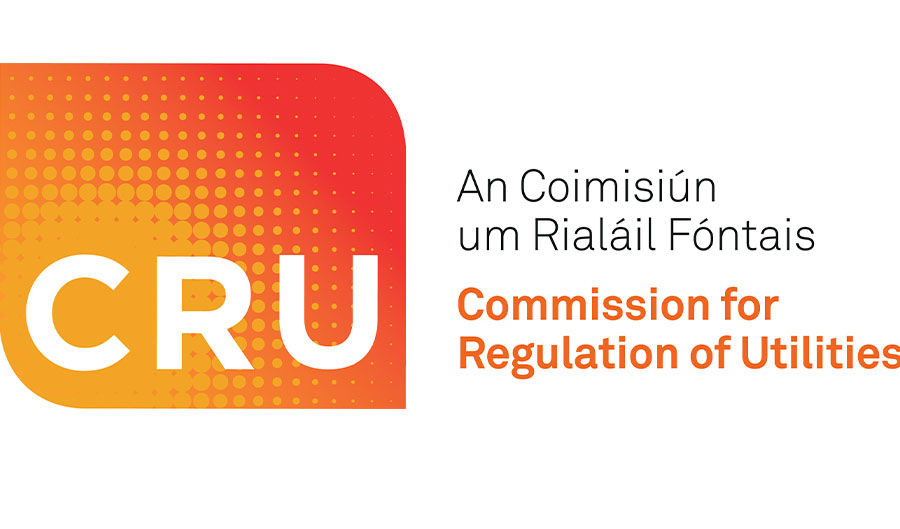
Rolling out alternative fuels
15th October 2025
Bridging the renewable divide: Lessons from Ireland’s coal-free leap
15th October 2025New National Energy Demand Strategy sets direction for smarter energy use in Ireland

 In Ireland’s transition towards net zero by 2050, Ireland’s first National Energy Demand Strategy (NEDS) is helping to clear the way for more renewables to be successfully integrated to system, writes CRU Chairperson Jim Gannon.
In Ireland’s transition towards net zero by 2050, Ireland’s first National Energy Demand Strategy (NEDS) is helping to clear the way for more renewables to be successfully integrated to system, writes CRU Chairperson Jim Gannon.
The NEDS, which was developed to meet both the specific ambition set out in the Climate Action Plan and to support wider decarbonisation and security of supply objectives, aims to enhance Ireland’s energy demand flexibility, helping to deliver a more sustainable, cost-effective and secure energy system. The strategy enables customers to adopt more flexible energy consumption patterns.
The NEDS was published by the CRU and encourages all energy users to use electricity more flexibly, particularly during periods of high renewable energy availability.
This shift will reduce carbon emissions, lower system costs, and enhance energy security, particularly by encouraging demand during periods of high renewable generation, when prices and emissions are lower.
The strategy promotes a coordinated approach across public bodies and sectors, including energy, enterprise, environment, planning, and regulation. The NEDS strategy is structured around these three key areas of focus:
- Smart services: Encouraging domestic and small business customers to use energy more flexibly.
- Demand flexibility and response: Enabling large energy users (LEUs) and storage providers to respond to system needs.
- New demand connections: Creating new connection policy pathways for large energy users such as data centres.
53 actions in support of Ireland’s climate targets
The NEDS outlines 53 key actions aimed at enhancing Ireland’s energy demand flexibility in support of climate targets. Key actions include increasing uptake of time-of-use and dynamic tariffs, enabling smart EV charging and energy sharing, reforming electricity network tariffs, and procuring long-duration energy storage.
These efforts are crucial for enabling households and small businesses to contribute to renewable energy generation.
Implementation and Progress
Since its publication in 2024, the NEDS has transitioned into the implementation phase, with a focus on incentivising flexibility through policies, market and standards, and enabling technologies. NEDS action owners have developed supporting plans and aligned them with broader organisational strategies. The CRU has submitted a Workforce Plan to government departments outlining staffing needs to support the future work of the CRU including Ireland’s transition to a low-carbon economy.
The CRU has published two biannual updates to date. These updates summarise progress, priorities, policy developments, and next steps with the objective of providing transparency and accountability as the strategy evolves.
Collaborative approach to delivery
This NEDS outlines a co-ordinated approach across relevant public bodies and relevant entities working to increase demand flexibility and requires that actions be taken across a broad spectrum of sectors including energy, enterprise, environmental, spatial and planning policy, and regulatory policy. To support these actions, further work and decisions are required across government departments, local authorities, enterprise development agencies, and other public bodies. Delivering the NEDS requires collaboration across multiple actors including government departments (DCEE, DETE), state agencies such as the SEAI and EPA, the CRU, system operators (ESBN, EirGrid, GNI), energy suppliers, and many others.
“The NEDS represents a transformative step in Ireland’s energy journey. By advancing demand flexibility across sectors and customer groups, it supports decarbonisation, enhances energy security, and reduces system costs.”
Focus on long-duration energy storage
In 2023, EirGrid and SONI (Northern Ireland’s TSO) conducted a Call for Evidence on market options for long duration energy storage (LDES). This initiative assessed the need for LDES, investment barriers, and potential revenue streams.
The outcomes, published in March 2024, directly informed the Department of Climate, Energy and the Environment’s (DCEE) Electricity Storage Policy Framework (ESPF).
The ESPF defines long-duration storage as solutions capable of generating for more than four hours. Key actions include:
- Action 6: Initial procurement of 500 MW of LDES, with contracts expected by 2028.
- Action 10: Establishing a route to market for 2030-2040 LDES needs by the end of 2028.
An EirGrid consultation on the LDES procurement mechanism is expected in September 2025, seeking stakeholder input on the proposed procurement mechanism to attract investment in approximately in 500MW of ≥4-hour LDES technologies. The CRU will review EirGrid’s recommendations following the consultation process and oversee delivery of the procurement mechanism.
Behavioural insights driving demand flexibility
To promote smart energy services and demand flexibility, SEAI’s Behavioural Economics Unit have undertaken research to develop key recommendations. Traditional approaches often rely on financial incentives (e.g., time-of-use tariffs), but these alone may not be sufficient to drive behaviour change.
SEAI’s research programme over the past two years has included the following items:
- Online Experiment (2024): Studied factors influencing engagement and intentions related to demand flexibility and smart energy services with a sample of 1,500 participants
- Literature Review: Developed a taxonomy of behaviours relevant to demand flexibility and roadmaps for behaviour change.
Time-of-Use Analysis (2023): Used data from the Behavioural Energy and Travel Tracker (BETT) to examine electricity usage timing in Irish homes. - Field Experiment (2024): Tested an intervention telling people about the environmental benefits of reducing peak consumption with an option to pre-commit to specific actions, looking at how this affected their activity during the evening peak in the next survey wave compared with a control group.
The research showed that while financial incentives can play a useful role, they are at times neither necessary nor sufficient to induce behaviour change.
Advancing a resilient energy future
The NEDS represents a transformative step in Ireland’s energy journey. By advancing demand flexibility across sectors and customer groups, it supports decarbonisation, enhances energy security, and reduces system costs. Through coordinated action and innovative policy, Ireland is laying the groundwork for a resilient, low-carbon energy future.
| Chairperson: Commissioner Jim Gannon
Jim Gannon has been a member of the Commission for Regulation of Utilities (CRU) since October 2019 and was appointed Chairperson in February 2023. Gannon previously served as the CEO of the Sustainable Energy Authority of Ireland, and before that role worked for 15 years in the private sector within the engineering and energy industry. Gannon is a graduate of NUI Galway, the University of Wales Aberystwyth and he holds an MBA from the UCD Smurfit School of Business. |

